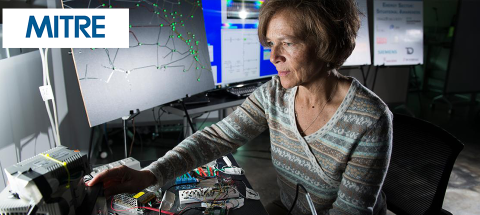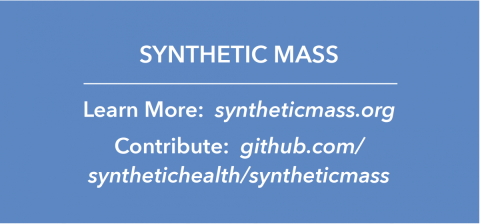
One of the more unique players in the Massachusetts digital health ecosystem is the Bedford-based MITRE Corporation. The not-for-profit organization oversees numerous federal research and development centers focused on finding solutions for a wide range of public problems on behalf of the U.S. government. We recently sat down with MITRE COO Peter Sherlock and MITRE Associate Department Head, Open Health Services, Jason Walonoski at their Bedford headquarters to discuss what MITRE does and some of their current projects.
Q. Where do you see MITRE in the Massachusetts tech world?
Peter Sherlock: At MITRE, we run R&D centers for the government across a number of areas from national security, homeland security, treasury, aviation, health and human services, cybersecurity, and even the judiciary. Our work for them spans a number of disciplines and national level challenges.
Our Massachusetts operations is located in the hotbed of technology here in the Boston area. So many of the problems that we work on have centers of expertise here in Massachusetts: healthcare, cybersecurity, electronics, technology, and data analytics, for example. The universities, the startup communities, and the mature communities all have significant activity here in this area that we don’t see happening anywhere else in the country. We’re fortunate to have been born here and to interact with this ecosystem. We also have work going on for federal agencies that actually connects us to local companies and state activities as well.
This location has become the primary hiring point for new college grads; we have almost 200 interns on campus this summer, and we hire almost 100 college grads every year. It’s a very vibrant community.
Q. What does digital health mean to you?
Anything that has to do with information. Almost every encounter, test, sensor, output, having to do with an individual’s health becomes part of digital health once it is digitized. Obviously there are a lot of different expressions of this: the vast repository of health records, telehealth, mobile apps. It’s pretty broad.
Jason Wolanowski: When I think about digital health, I think about “Can we standardize the measurements? Can we standardize data? Can we standardized algorithms?” That way we can standardize care and improve access, outcomes, and price for all Americans.
Q. Why is this important?
Most people go to see a variety of providers, if your data is on paper or not digitized it’s split among doctors. When you go see a specialist, they don’t have a total picture of your health. If you go out of state they don’t know anything about you. If you want to get to an era of personalized medicine, it won’t happen unless it’s digitized.
Pete: The record is clearly the point of integration. The value of data, to share it, to improve care, to help a patient. While it’s not all about records, records are where it all comes together.
Jason: Data is at the center of everything. There are all kinds of devices and apps recording endless amounts of data. All that stuff is going to get consolidated somewhere and become someone’s record.
Q. If you were talking with a college graduate today, would you tell them to stay in Massachusetts or go somewhere else?
Pete: I’d tell them to come to MITRE. We look for technical people who are creative and energetic and want to work in the public interest. It’s a great place to have a broad and rich career. I could say the same thing about Massachusetts. If you want to be in an environment where you can learn from startups and mature companies and move around from discipline to discipline to have a rich technical career, there is no better place to do it.
Q. What are some of the workforce challenges you face?
Pete: Given the growth we’ve had in these key technical domains I think a lot of it is just the numbers. We tend to grow and refine the people we recruit, but there just aren’t enough people with computer science, mathematics, and various engineering disciplines. When you look at people with experience, there’s a lot of competition for them.
Q. When you’re looking to hire someone, what are you looking for?
Jason: For kids out of college, I look for project work, real projects. I look to see if they were involved in competitions, did they enter a robotics competition, extracurricular stuff. The second thing is domain: it does help if someone displays that they’re not just interested in health. They volunteered in hospitals or clinics. If it’s defense, it’s people who got internships in that space. You look at what people’s passions are. You’re working in the public interest and you want to make sure people believe in it.
Q. One thing I’ve heard from firms is they don’t necessarily need or want a health background to work for them? Is that the case?
Jason: One of the strengths we have is a lot of people with different backgrounds. People with engineering degrees, science degrees, etc. All these different backgrounds in a workplace give you a lot of different insights. Cross disciplinary teams gives you different perspectives and creates more innovative solutions and we’re always looking for that.
Q. What is Synthetic Mass?

Jason: We have an initiative called The Standard Health Record. The idea is to standardize formats and data. The standard health record aims to standardize all the measurements in primary care and specialty care.
There’s a whole set of projects under the standard health record umbrella, including Synthea on GitHub, which stands for synthetic health. It’s a simulation of patients with a variety of health issues from birth to death. We generated all the demographics of Massachusetts and generated a synthetic Massachusetts at 1/7 scale. We put those records on the internet on a health information exchange and made them available in standardized ways for anybody to use with an API to develop against the data.
Q. Who would you like to engage with this? What should the Massachusetts digital health ecosystem know about Synthetic Mass?
Jason: It’s probably the largest repository of unprotected health records for people to innovate against. Whether you want to use it for education, academic analysis, or software development, it’s a good resource. It’s an open source project and we’re constantly trying to improve it by adding modules and data. If there’s an entrepreneur who doesn’t see data that is applicable to them they can work with us on a project to make the data available.
Q. What’s an example of that?
One good example of that is Boswell. They generated a homelessness module, so now there are all the issues and demographics associated with the homeless population. One of the things they’ve done is standardized a collection of data at different community health centers.
Q. How many open source contributors are there from Massachusetts?
Jason: There’s a few different organizations working on pieces that haven’t made final contributions. Boswell is the only group that has made a software contribution. We have several contributions from Michigan and Georgia Tech. We’ve had contributions from across the world, including New Zealand.
